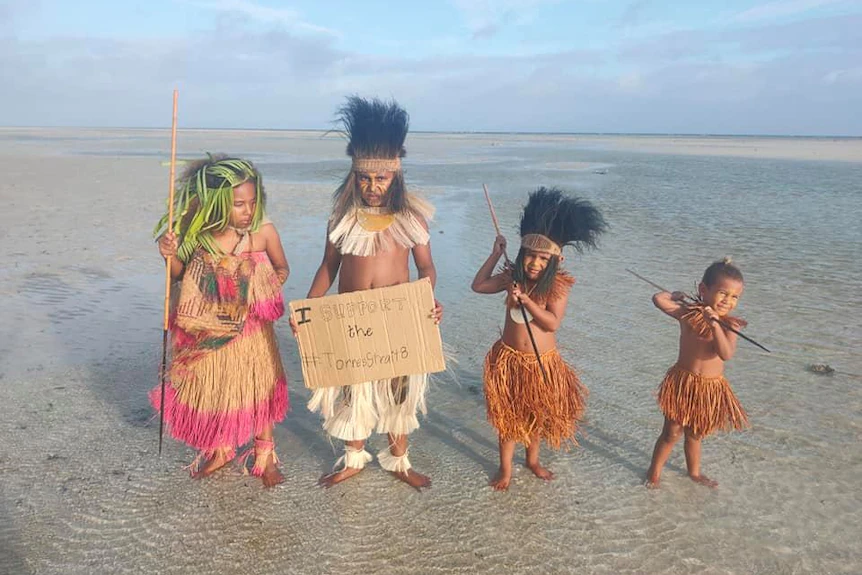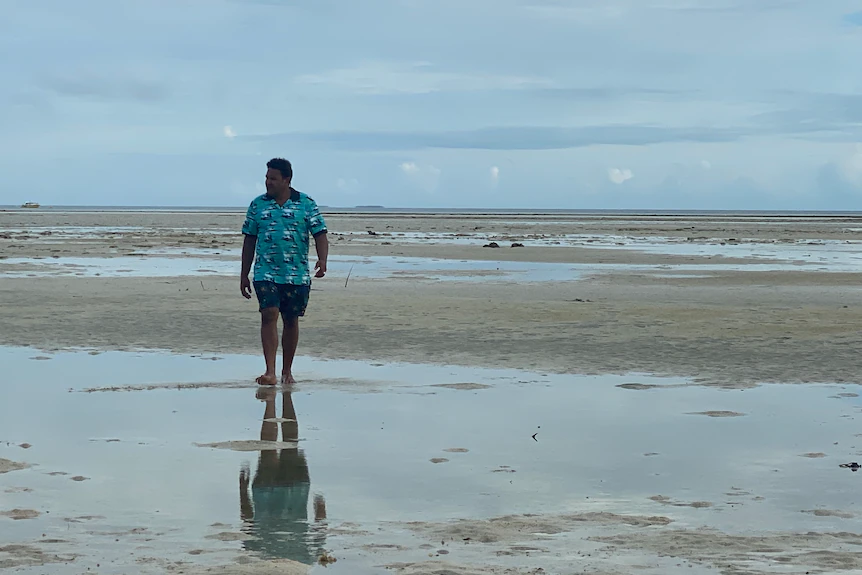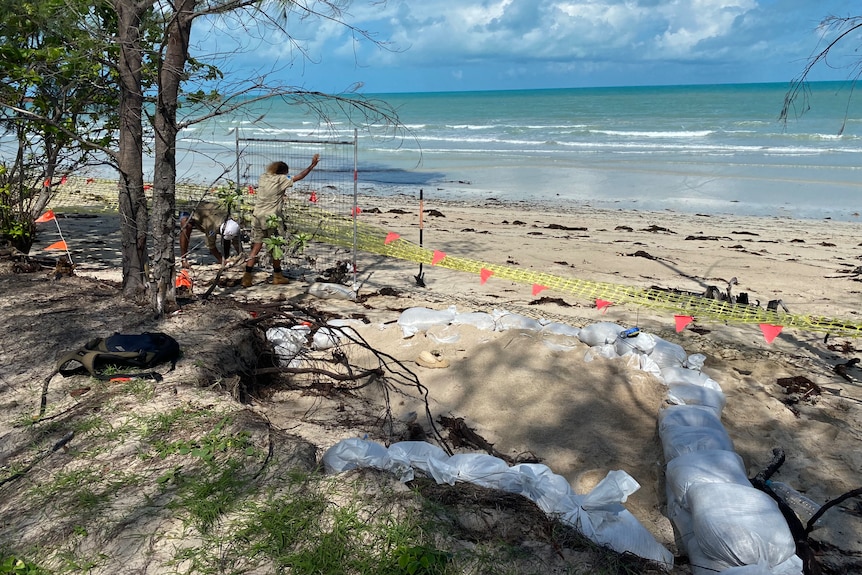A Torres Strait Islands leader who was part of a landmark climate change legal victory says the COP27 summit agreement and Australia’s commitment to a fund for developing countries will do nothing to help his community at the “frontline” of climate change.
Yessie Mosby, a traditional owner from Masig Island, is a member of the “Torres Strait Eight”, a group that won a legal case against the Australian government in the UN Human Rights Committee for climate change inaction.
Mosby, who attended COP27, said the group wanted to see greater mitigation and prevention measures, including a commitment to phasing out fossil fuels.
“Australia is the country on Earth who has two Indigenous races of people who are the oldest surviving cultures on Earth, and to have them neglected and sit at the corner where they don’t even bother to turn a glimpse to have a look at us, it’s sad,” he said.
“We’re at the frontline.”
Mosby said the climate deal reached by countries, including a loss and damage fund for vulnerable countries, would not help his region off Queensland’s far north.
He questioned Australia’s contribution to the fund, saying its own Indigenous communities were already suffering from the impacts of climate change.
“Each year, each day, each month, each week passes, we see changes in our islands, and not only our islands, but in the natural environment as well, the birds, the sea life,” he said.
“The island is being eaten away.”
Families in the Torres Strait have previously had to move traditional burial sites due to storm surges and inundation.
Mosby said he shared these stories with other frontline-climate nations at the conference.
“It was a very emotional story when they hear the stories about me and my son, and how we picked up our grandmother’s bones,” he said.
“We have all different stories, but the same cry.”

He said he understood the need to help other developing nations, but he felt the Torres Strait had been overlooked.
“It’s Australia’s obligation to look after the Pacific brothers and sisters too, but then again, we feel neglected by that,” Mosby said.
“How can you go and try and help your neighbour when you cannot clean your own backyard first?
“I don’t see that my people, the Torres Strait Islanders, will benefit anything, and if it will, they will just probably give us crumbs.”
The ABC has contacted the federal ministers for Environment and Climate Change and Energy for comment.
Associate Professor of International Relations at the University of Queensland Matt McDonald said the loss and damage fund agreement was a positive step for climate justice, but Australia was in a difficult position.
“The loss and damage fund is really about providing resources for those countries to be able to offset the effects of those changes, given they’re not particularly responsible for creating them,” he said.
“It could be politicised a little bit, if it’s seen that Australia is contributing significantly to a fund that facilitates payment to external communities, but at the same time isn’t doing enough to either try to insulate parts of Australia from the effects of climate change, or really try to throw some funds at those communities to help them.”
Dr McDonald said the downside of the COP27 agreement was that it did not directly address the causes of climate change.
“We didn’t see significant new commitments in terms of emissions reduction … moving away from fossil fuels, and those are the types of things that are going to actually help address the problem of climate change, not just help deal with the economic costs,” he said.

Mosby said his island community was looking for a commitment to keep fossil fuels in the ground and a switch to 100 percent renewables.
He invited government representatives to travel to the Torres Strait Islands to sit with community leaders.
“We’ve monitored our land for hundreds and thousands of years,” he said.
“Ancient laws we have been abiding by, and looking after our home, and the knowledge we have of our home, and the surrounding areas of the sea.
“To have the government come and work with us and we come up with a safer solution, that’s going to be beneficial for our future.”
The Minister for Climate Change Chris Bowen said the government recently announced $15.9 million (US$10.5 million) for a new Torres Strait Climate Centre of Excellence to “deliver a coordinated regional response to climate change”.
He said the Commonwealth and State and Territory governments would also co-design a clean energy strategy with First Nationals people.
Bowen said the strategy was one of a kind in Australia and would provide a path for First Nations to “participate in the design, development and implementation of energy policies and programmes,”.
He said the complaint to the UN was made in 2019 under the previous government.
“The Australian government is considering the committee’s views and will provide its response in due course,” he said.
SOURCE: ABC PACIFIC/PACNEWS













